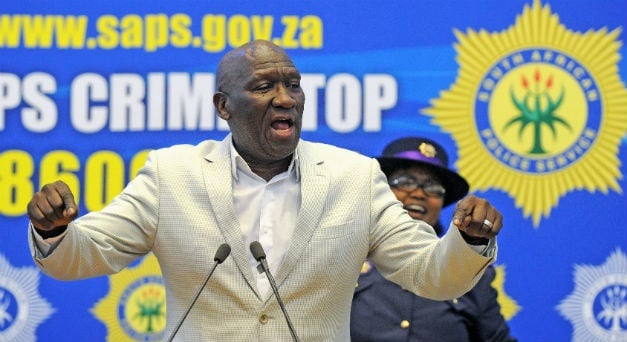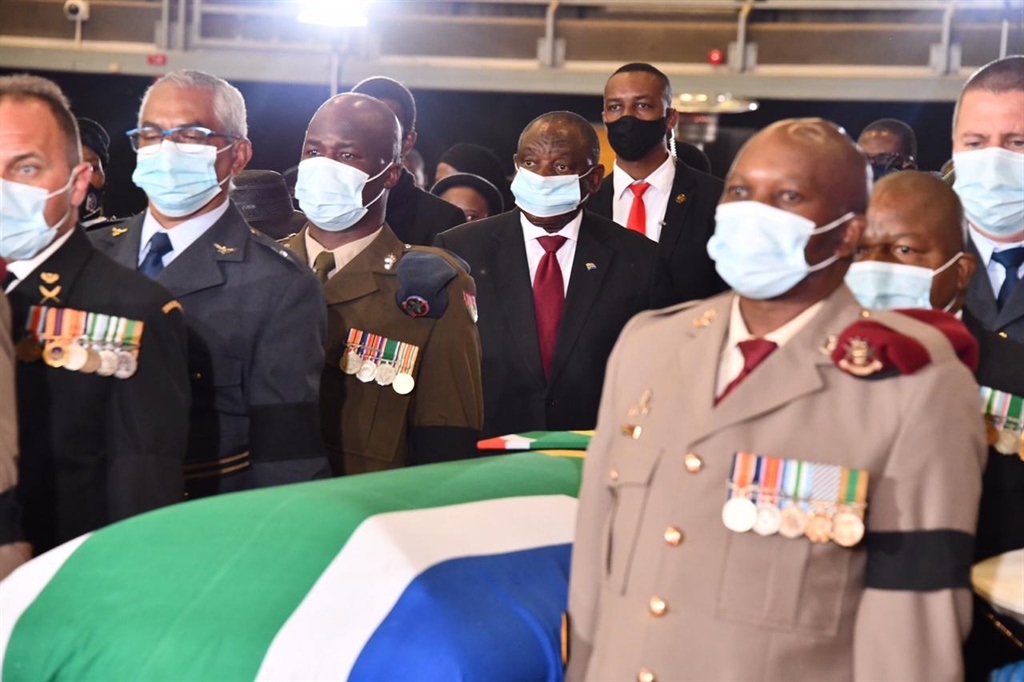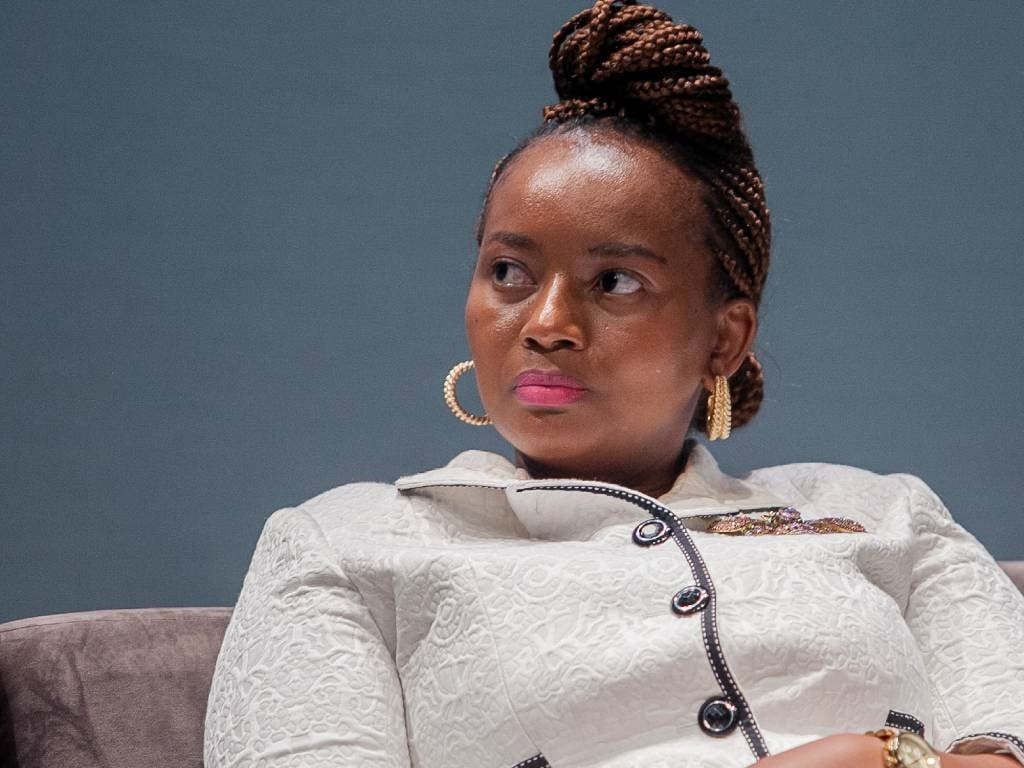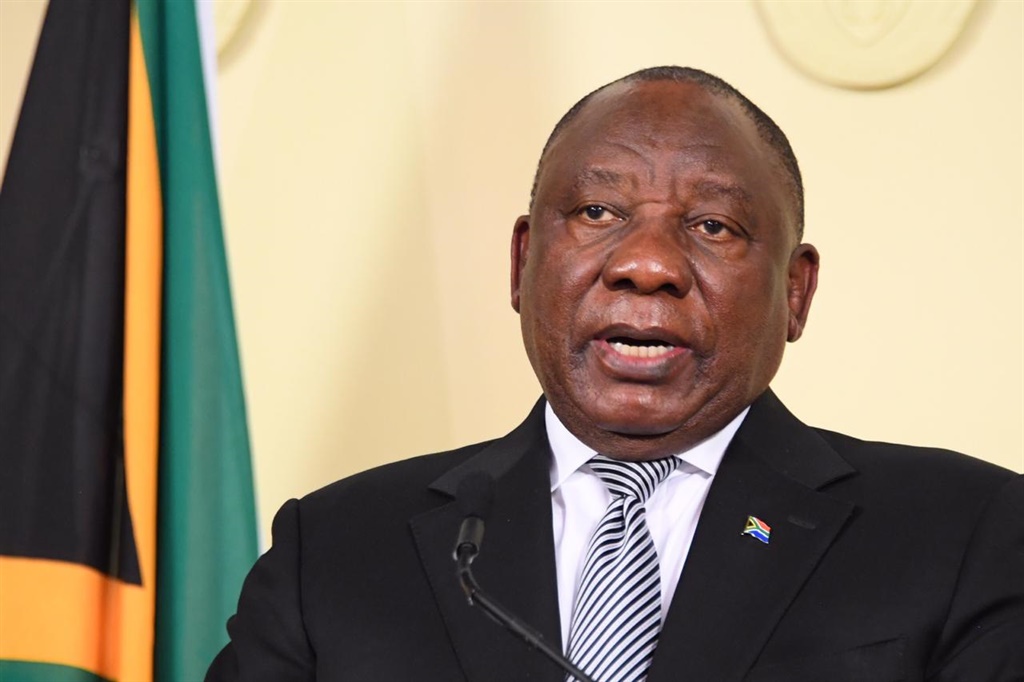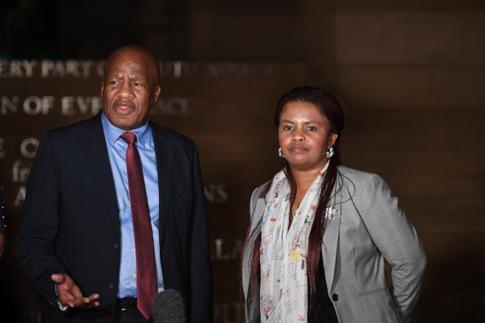
While a state funeral is an honour bestowed on a individual, it does not mean that the citizen, even if they are Andrew Mlangeni, will get the respect they deserve, writes Mpumelelo Mkhabela.
A state funeral is an immediate posthumous honour bestowed on a respected citizen by a sitting president of the Republic.
Many deserving South Africans have been laid to rest through this solemn tradition, officiated by the state, and financed by taxpayers.
But what happened at the funeral service of Andrew Mlangeni was a posthumous desecration for the man credited for his firm stance against corruption and lawlessness.
Live television coverage showed mourners disregarding the law with gay abandon.
Government officials, ANC leaders and supporters were seen disregarding physical distancing rules.
The funeral was used to demonstrate that lawmakers and enforcers can violate it.
The law is, however, binding on some other lowly citizens out there.
Those who broke the law at the funeral were not there to pay their last respects to Mlangeni. They were there to spit into his grave. Their absence would have been his honour.
Mlangeni stood for the rule of law.
Succinctly defined in Section 9(1) of the Constitution of the Republic, the rule of law means everyone is equal before the law and has the right to equal protection and benefit of the law, regardless of status.
There is, however, more to what we witnessed.
It was a cruel metaphor for the kind of era we are in, of unrestrained looting, normalised corruption and a general collapse of ethics in society, particularly in state institutions.
Elementary manners that usually come naturally, unscripted, regardless of the status of the deceased, were discarded at the funeral.
The sight of senior officers of the South African National Defence Force smoking while conducting the funeral procession was extremely offensive.
For smokers, who have not secured a fix since the onset of Covid-19 lockdown because the nanny state is trying to protect them, it was a paralysing slap.
We may never know the truth about whether the army officer bought his cigarettes legally or not.
Tender wrongdoing
To add to the assault on Mlangeni’s legacy, the company hired to provide funeral services had been fingered in wrongdoing, such as inflating of prices in previous state funerals.
The fact that it got the tender again goes to show that we are in an era where irregularities are rewarded handsomely. Those who comply with the law are being hung out to dry.
Mlangeni’s legacy was assaulted even before the funeral.
Former president Jacob Zuma, who is standing trial on allegations of corruption and whose conduct while in the highest office triggered the establishment of a state capture commission of inquiry that is likely to cost taxpayers about R1 billion, was given an ANC platform to “reflect” on Mlangeni’s life.
Of course, in his reflection he would not say that Mlangeni was correct to demand his resignation as president. Yet, such a reflection would have captured the true essence of Mlangeni’s attitude towards corruption.
The ANC preferred a compromised man to “reflect” on the legacy of a leader the ANC wants to make us believe it holds in the highest regard.
The scarring of Mlangeni’s legacy was not the first to haunt the souls of self-respecting South Africans.
President Nelson Mandela was dishonoured by comrade thugs in the Eastern Cape, who stole money earmarked for his funeral service. Some comrade thugs lined their pockets in Mpumalanga with money supposedly meant for Mandela’s memorial service.
Stealing from the dead
Put differently, the comrade thugs in the Eastern Cape and Mpumalanga allocated taxpayers’ money in Mandela’s name, knowing full well they were throwing a javelin to their wallet.
They literally pickpocketed Mandela while he was lying still, unable to respond.
Such is the extent of the collapse of ethics among the governing elites, that they steal from the dead.
But they want us to believe that Mandela is their hero. Really?
For as long as the thugs are not in jail, the posthumous dishonour of Mandela continues. It doesn’t matter what they say rhetorically in struggle song or wherever.
Similarly, if the equality before the law clause doesn’t apply to those who broke the law in front of the whole nation at Mlangeni’s funeral – not that you should hold your breath, dear reader – it means the dishonour against him is continuing.
The collapse of ethics and the entrenchment of impunity among ruling elites have huge implications for the future of our country.
The dishonour of people of high stature, like Mandela and Mlangeni, and the general theft of public resources without consequences are having a corrosive effect on society in general.
Ordinary citizens are no doubt asking themselves undesirable questions.
If the lawmakers and enforcers can break the rules, why can’t I?
If they can steal Covid-19 funds, while health workers risked their lives without protective equipment, why can’t I take a smaller-nyana something where I have access?
If nothing drastic is done, we would soon be teetering on the brink of the complete collapse of the rule of law.
Which brings me to a favourite story in Michela Wrong’s book, It’s Our Turn to Eat, about John Githongo, a Kenyan whistle blower.
In 2003, Githongo advised President Mwai Kibaki on the best way to fight corruption. “Sir,” he told the president, “we can set up all the anti-corruption authorities we want, spend all the money we want, pass all the laws on anti-corruption, but it depends on you. If people believe the president is ‘eating’, the battle is lost. If you are steady on this thing, if leadership is there, we will succeed.”
To the South African ruling elites, and the opposition parties, wherever you have influence – big or small – in all spheres of government, over to you.
– Mpumelelo Mkhabela is a former parliamentary correspondent, editor of the Sowetan and political analyst.
* Want to respond to the columnist? Send your letter or article to opinions@news24.com with your name, profile picture, contact details and location. We encourage a diversity of voices and views in our readers’ submissions and reserve the right not to publish any and all submissions received.
Disclaimer: News24 encourages freedom of speech and the expression of diverse views. The views of columnists published on News24 are therefore their own and do not necessarily represent the views of News24.

